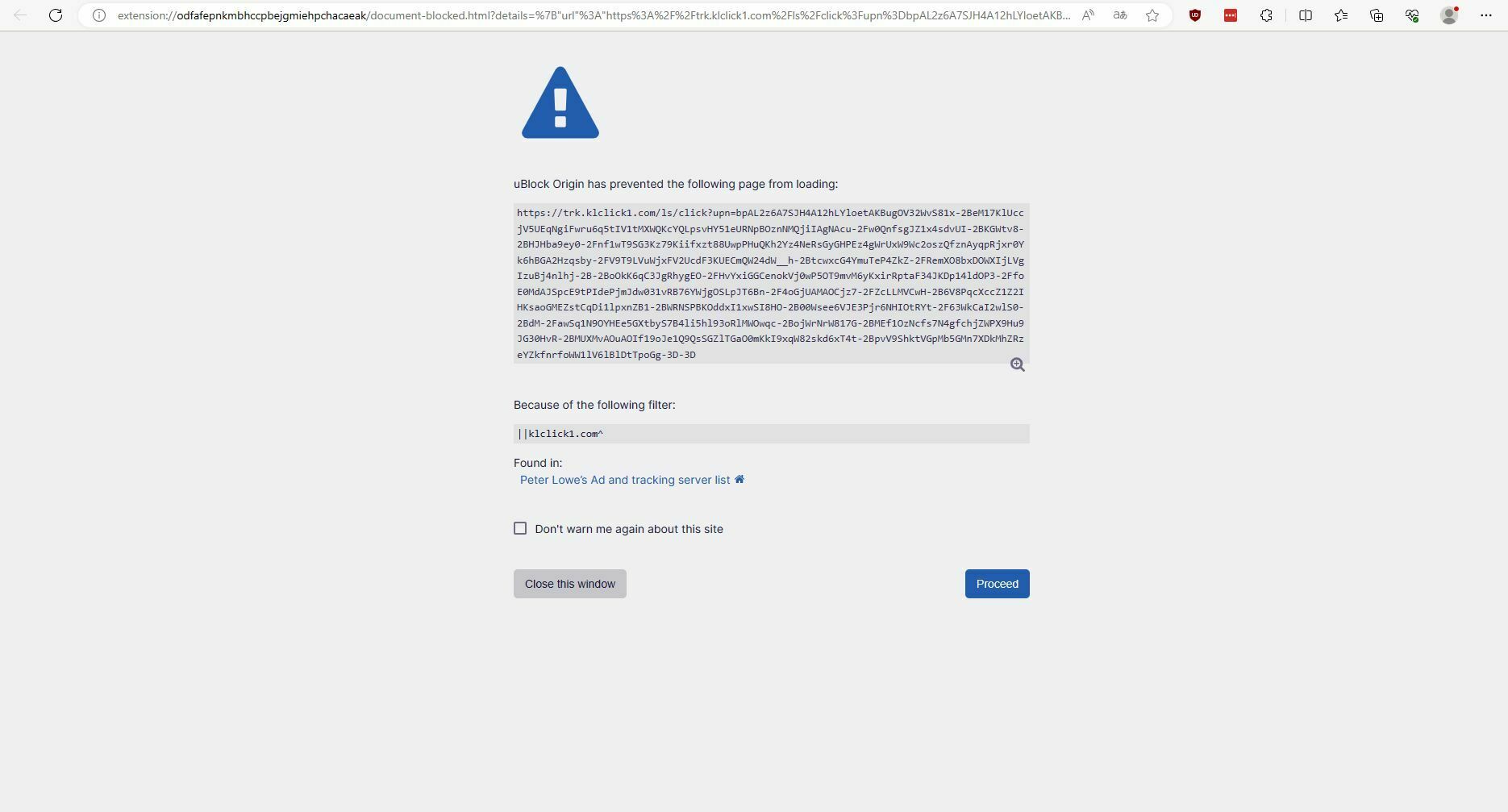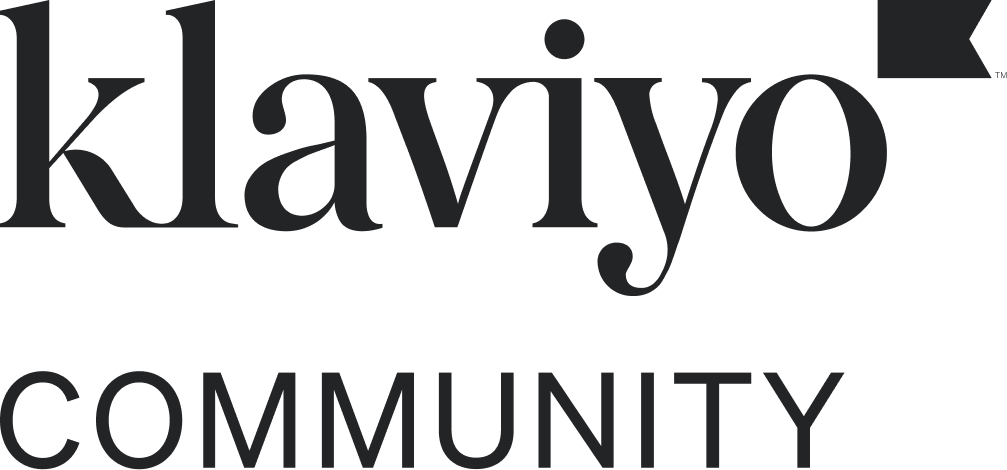Hey @Ben,
If you haven’t already, I would encourage you to take a look at some past Community post on this topic. I’ve linked some below that I think you’ll find helpful:
As I’ve previously explained in a Community post above, the “Klclick1.com” portion of the link is used for click tracking purposes. This is what allows Klaviyo to trigger a clicked email event in your account.
The simplest solution would be to set up and use your own dedicated click tracking instead of Klaviyo’s standard one. Doing so would typically lend ad blockers - such as uBlock, more credibility in your links and wouldn’t block them. Keep in mind though, that even with a dedicated click tracking, it’s not a guarantee that links won’t be blocked. It would all depend on how aggressive your recipient’s ad blockers and settings are dialed to.
I hope this helps!
David
Thanks David,
I read the links but we don’t have the skills to setup our own link tracking. And we’re more concerned with understanding the broader implications because consumers are rightly taught to question domains they don’t recognise.
- We don’t want to create confusion around this and tell people it’s fine because learning to question domains you don’t recognise helps people recognise legitimate scams
- We don’t want to link our trusted name with tracking customers beyond our site across the internet or worse, having their habits on-sold.
Does Klclick1 or Amazon ever do this with our customer’s Klaviyo data or am I being super naive about the reality of the internet?
Cheers
Hey @Ben,
Those are great concerns!
For starters, Klaviyo’s klclick1 is not a tracker used to serve ads. Unlike third-party trackers, this is a first-party tracker that only identifies and tracks the behavior of your customers that originated from a Klaviyo email. For example, someone clicking on an email and is taken to your website. With this klclick1, Klaviyo is able to track a clicked email event within our own account. Now, if that same user navigated outside of your website, they aren’t tracked any further.
You can think of this as someone going to an amusement park where you have a digital ticket (think Disney or Universal). Users who are inside the theme parks can tap their digital tickets to ride attractions. But once they leave the theme park, they’re gone. That is until they return to the theme park the next day and use their digital tickets again.
Your main concern sounds really to be based on third-party trackers which can track behaviors outside of your site. This is actually something that setting up and using a dedicated click tracking addresses. Because using your own click tracking method, you aren’t relying on other services to track your customer behaviors.
Additionally, I also noticed that the screenshot mentions that the Klaviyo klclick1 tracker was blocked as part of “peter lowe’s ad and tracking list”. In my experience, a number of known reputable links and domains are block by this ad blocker due to the wide net it casts.
At the end of the day, that ad block is performing its duty of blocking any and all types of trackers. It's just not one that distinguishes between first and third party trackers and their used purposes and typically blocks all trackers.
For help setting up dedicated click tracking, I would suggest reaching out and working alongside some of our wonderful Klaviyo Partners through our Partner Directory.
David
Thanks for clarifying David, much appreciated.

